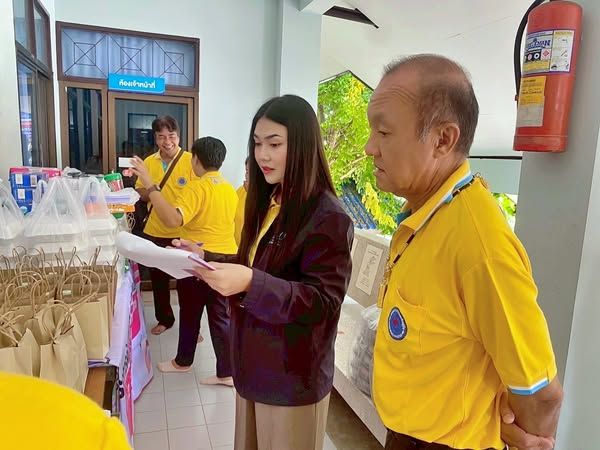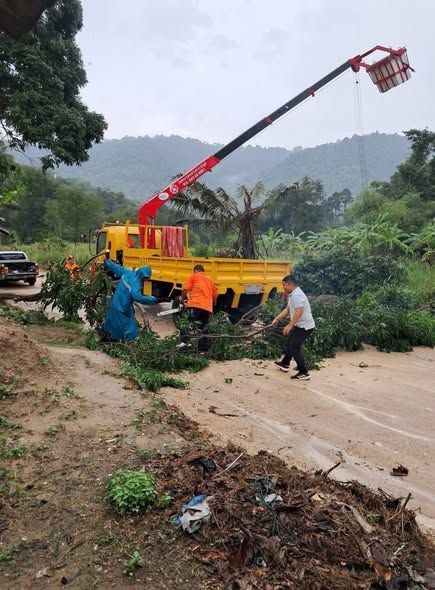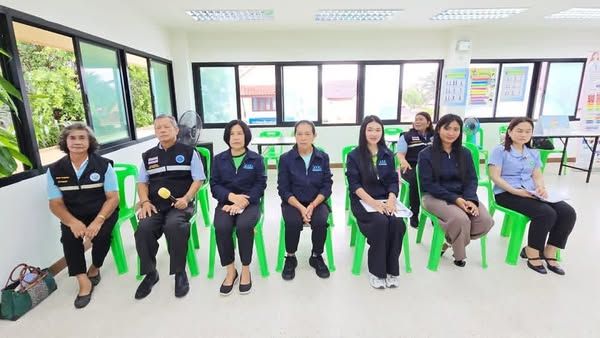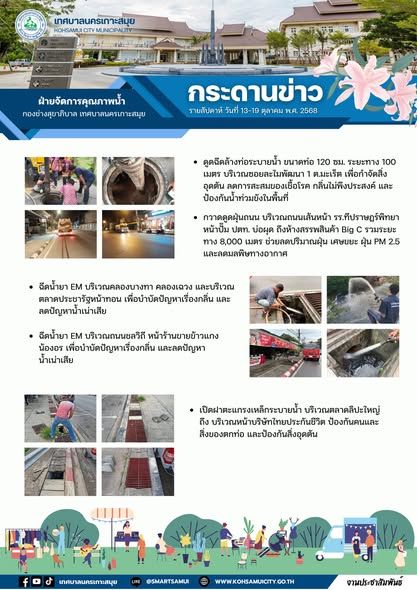Ko Samui’s Maenam Subdistrict Health Promoting Hospital has launched a vital project to screen for diabetes and hypertension, targeting residents aged 35+ in villages 1-6. This initiative aims to boost community health, prevent chronic diseases, and ensure early care for new cases.
KoSamui #Maenam #HealthInitiative #DiabetesAwareness #HypertensionScreening #CommunityHealth #Thailand #IslandLife #PreventativeCare #PublicHealth #TravelThailand #Samui #WellnessTravel
Project Overview
The Ko Samui Municipality Health Security Fund has initiated a comprehensive risk screening project targeting diabetes and hypertension in Maenam Subdistrict. This project is designed to identify individuals at risk and ensure timely referral and treatment, focusing on improving public health outcomes within the community.
Inauguration and Stakeholder Participation
The project commenced with an opening ceremony on August 18, 2025, at the Maenam Subdistrict Health Promoting Hospital, located in Ko Samui District, Surat Thani Province. The ceremony was presided over by Mr. Niwet Saksri, Director of the Maenam Subdistrict Health Promoting Hospital. In attendance were members of the fund committee, municipal staff, and personnel from the Public Health and Environment Division, reflecting strong collaborative support for the initiative.
Target Population and Screening Goals
The target groups for the screening project include village health volunteers from Maenam Subdistrict, specifically from villages 1 through 6, as well as local residents. The primary objectives are:
- Early identification of new cases of diabetes and hypertension among participants
- Prompt referral for appropriate medical treatment based on established healthcare protocols
- Disease prevention through proactive screening, particularly for residents aged 35 and above
Health Education and Behavioral Change
Beyond risk screening, the project emphasizes the importance of health education and awareness. Community members are encouraged to adopt healthier behaviors to reduce their risk of chronic diseases. Educational activities are incorporated to inform participants about lifestyle modifications, such as balanced nutrition, regular physical activity, and responsible health management.
Accessibility and Service Utilization
The initiative aims to ensure that all residents within the target demographics can access screening and follow-up health services. The project is structured to help participants utilize their health benefits efficiently and receive necessary care without barriers.
Funding and Support
Financial backing for the project comes from the Ko Samui Municipality Health Security Fund. This support enables the provision of screening services, educational materials, and necessary follow-up care for eligible residents.
Broader Public Health Context
Diabetes and hypertension are major public health concerns in Thailand, contributing to significant morbidity and healthcare costs. Early detection through community-based screening projects plays a crucial role in reducing the burden of these non-communicable diseases. The involvement of village health volunteers as both beneficiaries and facilitators enhances the project’s reach and effectiveness through grassroots engagement.
Frequently Asked Questions
Frequently Asked Questions (FAQ)
Who is eligible to participate in the Diabetes and Hypertension Risk Screening Project in Maenam Subdistrict?
Residents aged 35 and above from villages 1-6 in Maenam Subdistrict, including village health volunteers, are the primary target groups for this screening initiative.
What are the main goals of the screening project?
The project aims to identify individuals at risk for diabetes and hypertension, provide early referrals for treatment, and promote disease prevention through screening and health education.
How does the project support community members in improving their health?
The initiative offers not only risk screening and referrals but also health education activities. These efforts encourage healthier behaviors, such as balanced nutrition and regular exercise, and help residents utilize their health benefits for timely medical care.




